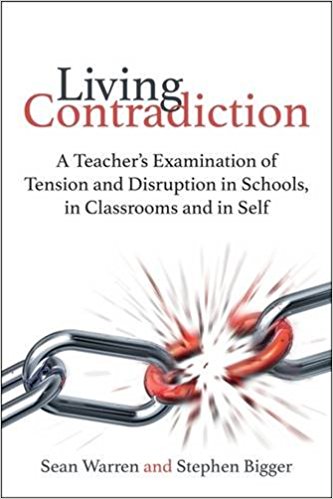BD asks for further information.
In 1987 I sat through a half hour diatribe by Kenneth Baker giving the reasons for the National Curriculum. The HMI Curriculum Matters booklets were part of the journey, which was a reaction to William Tyndale School excesses. Mrs Thatcher's opposition to ILEA and Schools Council which identified creative curriculum solutions. The National Curriculum, developed by the National Curriculum Council (NCC) would be subject based applying secondary school subjects even to infant schools.
Many of us were involved in NCC discussions and conferences and the common complaints from the floor were: where do skills fit? where does multicultural education go? and environmental education? and politics/citizenship. The response that subjects would include these as appropriate seemed to most as resulting in nothing being done. So, with an already packed curriculum package (remember there were 18 science ATs at this time), these cross curricular aspects would have to be shoehorned in. After more planning committees, cross curricular skills and themes were published. We pointed ot that you could base the whole curriculum around cross curricular themes, especially in primary schools. The good thing was that cross curricular themes allowed a degree of subversion away from a boring knowledge-centred litany of facts to be remembered. I recall that we welcomed the first draft of the Geography curriculum as it was values and issues based. Unfortunately by its final form it had become factual and uninteresting. History caused a bitter debate over those wanting world history and others wanting British history and Empire. The latter won. English had its battles over the literature canon, multicultural or white middle class. Those debates still go on today.
A number of colleagues worked with me to unpack curriculum subjects in terms of these themes. This resulted in the book Spiritual, Moral, Social and Cultural Education: Values across the Curriculum. Each chapter demonstrated how subjects can operate on broader issues.
My two contributions to Leicester, Mogdil and Modgil were a) on anti-racist spiritual and religious education (volume V) and b) on the work of Birmingham Compact with whom I worked 1992-4 (volume III).
First (a) I was a religious education teacher and lecturer and was also deeply into anti-racist education. In my years religious education was being redefined as multi-faith education until the 1988 Education Reform Act brought it back to a Christian Education agenda. I supported multi-faith education; but I am currently hostile to a Christian Instruction curriculum we moved away from in the 1970s.
Secondly (b) Birmingham Compact worked mainly with KS4 and KS5 increasing motivation and skills. My paper demonstrated its effectiveness; but the agenda of Ofsted and league tables persuaded schools not to work with all pupils but to concentrate on those few who might be mentored to achieve a C and not a D.
In conclusion the debate between teaching so-called 'knowledge' and critical assessment is still live. It is not either-or but both-and. Knowledge cannot morally be taught as final and unchallengeable. All academic effort focuses on challenging and testing knowledge-claims.
Secondly (b) Birmingham Compact worked mainly with KS4 and KS5 increasing motivation and skills. My paper demonstrated its effectiveness; but the agenda of Ofsted and league tables persuaded schools not to work with all pupils but to concentrate on those few who might be mentored to achieve a C and not a D.
In conclusion the debate between teaching so-called 'knowledge' and critical assessment is still live. It is not either-or but both-and. Knowledge cannot morally be taught as final and unchallengeable. All academic effort focuses on challenging and testing knowledge-claims.
Literature:
Bigger S and Brown E (1999) Spiritual, Moral, Social and Cultural Education: Values across the Curriculum
Leicester, M, Mogdil C and Mogdil S 1999, Education, Culture and Values, volumes I-VI.
